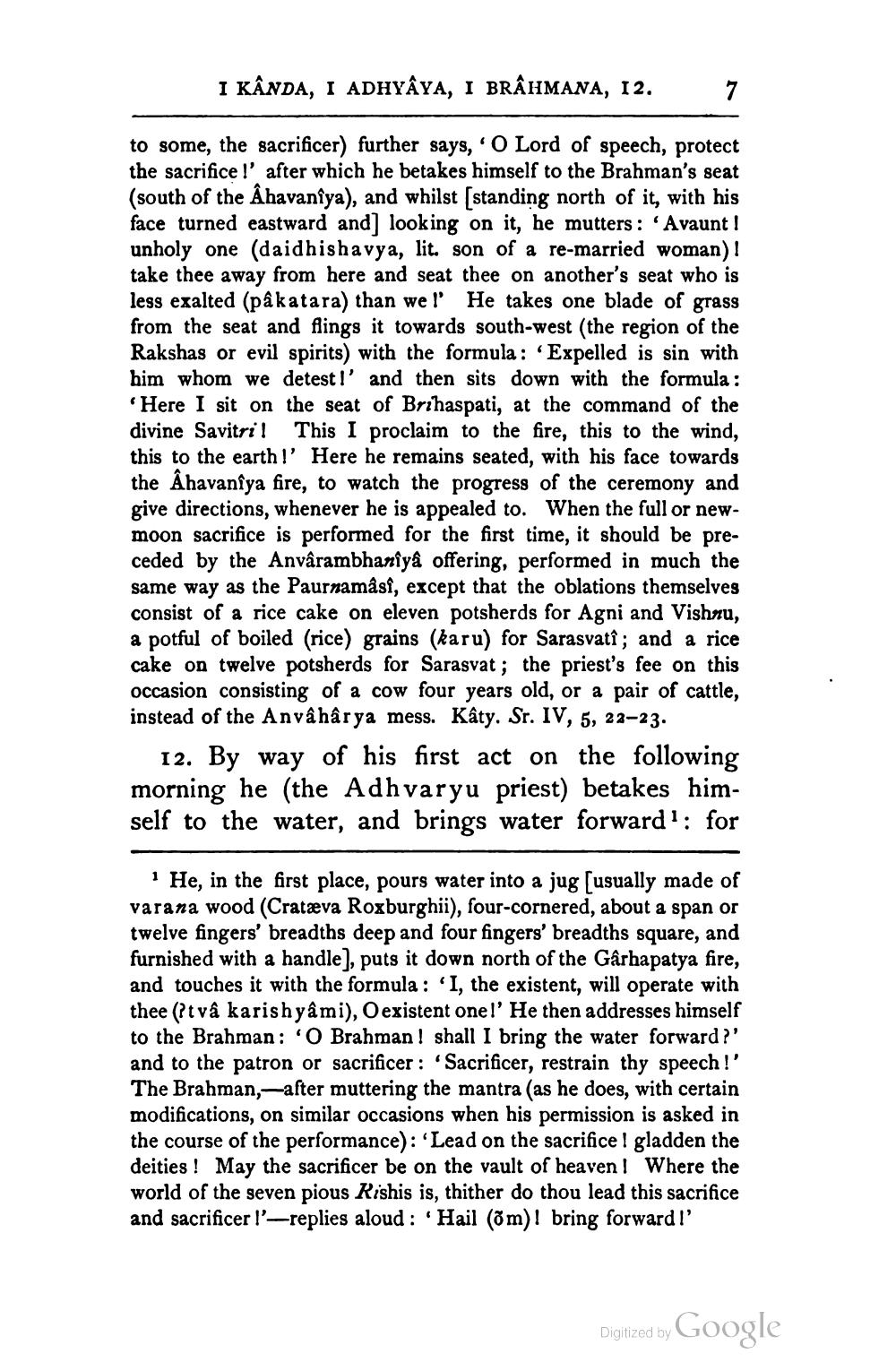________________
I KÂNDA, I ADHYÂYA, I BRAHMANA, 12.
to some, the sacrificer) further says, 'O Lord of speech, protect the sacrifice!' after which he betakes himself to the Brahman's seat
(south of the Ahavanîya), and whilst [standing north of it, with his face turned eastward and] looking on it, he mutters: 'Avaunt! unholy one (daidhishavya, lit. son of a re-married woman)! take thee away from here and seat thee on another's seat who is less exalted (pâkatara) than wel' He takes one blade of grass from the seat and flings it towards south-west (the region of the Rakshas or evil spirits) with the formula: 'Expelled is sin with him whom we detest!' and then sits down with the formula: 'Here I sit on the seat of Brihaspati, at the command of the divine Savitri! This I proclaim to the fire, this to the wind, this to the earth!' Here he remains seated, with his face towards the Âhavanîya fire, to watch the progress of the ceremony and give directions, whenever he is appealed to. When the full or newmoon sacrifice is performed for the first time, it should be preceded by the Anvârambhanîyâ offering, performed in much the same way as the Paurnamâsî, except that the oblations themselves consist of a rice cake on eleven potsherds for Agni and Vishnu, a potful of boiled (rice) grains (karu) for Sarasvatî; and a rice cake on twelve potsherds for Sarasvat; the priest's fee on this occasion consisting of a cow four years old, or a pair of cattle, instead of the Anvâhârya mess. Kâty. Sr. IV, 5, 22-23.
7
12. By way of his first act on the following morning he (the Adhvaryu priest) betakes himself to the water, and brings water forward1: for
1 He, in the first place, pours water into a jug [usually made of varana wood (Cratæva Roxburghii), four-cornered, about a span or twelve fingers' breadths deep and four fingers' breadths square, and furnished with a handle], puts it down north of the Gârhapatya fire, and touches it with the formula: 'I, the existent, will operate with thee (?två karishyâmi), O existent one!' He then addresses himself to the Brahman: 'O Brahman! shall I bring the water forward?' and to the patron or sacrificer: 'Sacrificer, restrain thy speech!' The Brahman,-after muttering the mantra (as he does, with certain modifications, on similar occasions when his permission is asked in the course of the performance): 'Lead on the sacrifice! gladden the deities! May the sacrificer be on the vault of heaven! Where the world of the seven pious Rishis is, thither do thou lead this sacrifice and sacrificer l'-replies aloud: Hail (om)! bring forward!'
Digitized by
Google




